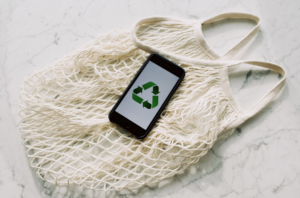Spotting Greenwashing on a Product!
There is a lot of greenwashing going on in the world. What is it, you may ask? Well, to put it simply: greenwashing is a form of marketing that tries to make a company’s product seem eco-friendly or sustainable when they are not. A good example would be an oil company trying to market their gas as “eco” fuel because they have added an additive that reduces emissions from cars. In this blog post, we will teach you how to spot greenwashing so you can avoid being fooled!
Vague Language
 Now, this is where things often get hazy. Terms “sustainable,” “eco-friendly,” and “safe for the environment” are thrown around so much that they’ve lost all meaning. You can’t just assume something is environmentally safe because it has greenwashed wording on the packaging! As consumers, it’s up to us to be more aware and read the ingredients list to see what’s really in our products.
Now, this is where things often get hazy. Terms “sustainable,” “eco-friendly,” and “safe for the environment” are thrown around so much that they’ve lost all meaning. You can’t just assume something is environmentally safe because it has greenwashed wording on the packaging! As consumers, it’s up to us to be more aware and read the ingredients list to see what’s really in our products.
Look for specific claims about a product being environmentally friendly. For example, “biodegradable” or “recyclable.” If those terms are used, they should be backed up by evidence on the packaging or website. Claims like “natural” or “natural ingredients” could mean anything, so they’re not helpful either.
Irrelevant Claims
They tend to talk about irrelevant claims. Greenwashing is everywhere; you can’t escape it! It seems like every day. Another company has come out with its version of a greener product that is somehow better for the environment. However, some of these products are nothing more than a marketing ploy to make you think that the company is environmentally friendly.
One way to determine if a product is genuinely eco-friendly or not is by looking at its ingredients. If the product contains harmful chemicals or pollutants, it’s not good for the environment. So, be sure to do your research before you buy any “green” product!
Lack of Transparency
The greenwashing phenomenon is often facilitated by a lack of transparency on the advertiser’s part. Often, companies will fail to disclose all of the ingredients in their products, or they will use vague and misleading terms like “eco-friendly” and “natural.” If you’re not sure about what’s in a product, be sure to contact the company and ask! Contact them if you ever have the slightest suspicion that a company may be greenwashing its product! Don’t let big corporations pull one over on you. It’s your money and it’s your power to vote with your dollar; use both wisely by only buying products from companies who are honest about their environmental claims.
In conclusion, you have to be aware of greenwashing to make intelligent choices when you buy products. Be sure to look at the ingredients list and check with companies before purchasing a product!
